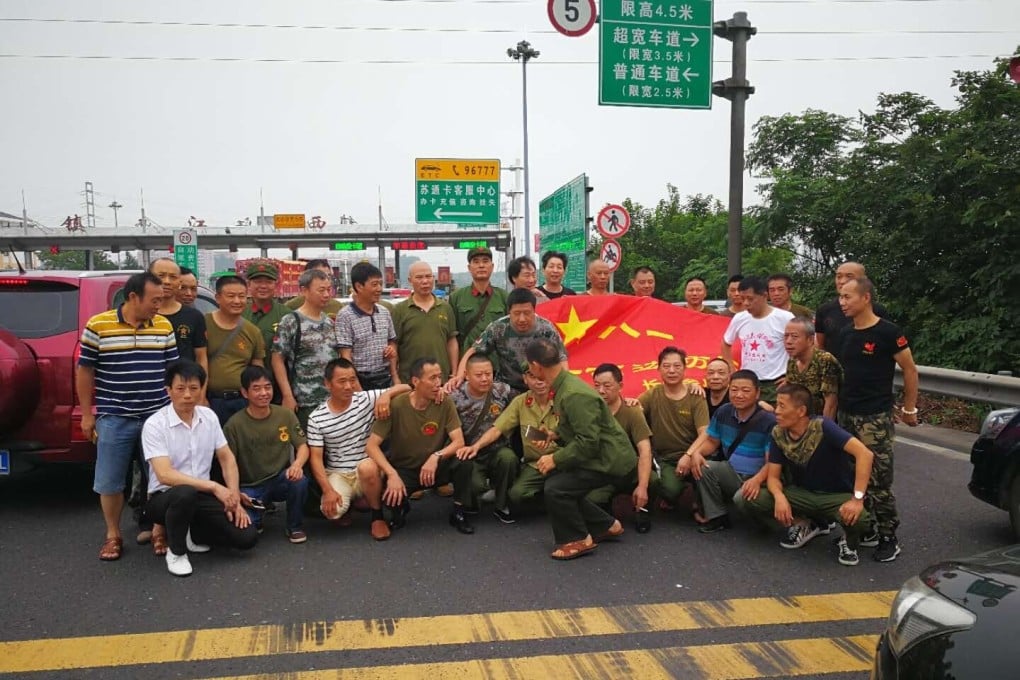Advertisement
China unveils new plans to help veterans – but who will really benefit?
- Legislation aims to improve support for ex-service personnel but proposals to favour senior officers raise concerns others will miss out
- Veterans have protested about their treatment for years and have accused local officials of denying them benefits
3-MIN READ3-MIN

China has unveiled details of a new law to honour and support veterans of the People’s Liberation Army.
Veterans have long campaigned for better treatment but for years they had little to show for their efforts.
In 2016 thousands of veterans staged a rally outside the Central Military Commission in Beijing, which prompted the commission to promise it would act.
Advertisement
But it was not until 2018, when further protests happened in cities around the country – including a five-day rally in the eastern city of Zhenjiang that was violently broken up – that the authorities announced that work had started on the draft law.
Last week it was announced that the National People’s Congress had finished a one-month-long public consultation period on the proposed legislation.
The draft, which contains 77 articles, aims to improve former service personnel’s social standing by designating military service as a “respectable profession”.
Advertisement
Select Voice
Select Speed
1.00x